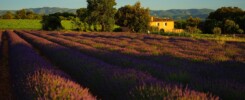The Vedas are a collection of ancient religious texts that form the foundation of Hinduism and are considered among the oldest scriptures in the world. They are written in Vedic Sanskrit and are comprised of four main Vedas:
- Rigveda: The Rigveda is the oldest of the Vedas and consists of hymns and prayers addressed to various deities, including Agni (fire), Indra (king of gods and god of thunder and rain), Varuna (god of the cosmic order), and Soma (a sacred plant). It is divided into ten books, or mandalas, containing a total of 1,028 hymns.
- Samaveda: The Samaveda is primarily a collection of melodies (saman) used by priests during rituals and sacrifices. It is derived from the Rigveda and contains verses set to music. The Samaveda is divided into two main parts: the “Purvarchika” and the “Uttararchika.”
- Yajurveda: The Yajurveda contains prose mantras and verses used by priests during sacrificial rituals. It is divided into two main branches: the “Krishna Yajurveda” (black Yajurveda) and the “Shukla Yajurveda” (white Yajurveda). Each branch contains both prose and verse sections.
- Atharvaveda: The Atharvaveda contains hymns, incantations, and spells used for various purposes, including healing, protection, and prosperity. It deals with everyday concerns and is considered more “magical” or practical compared to the other Vedas.
In addition to the four Vedas, Vedic literature also includes several other important texts known as the Vedangas (limbs of the Vedas) and the Upavedas (subsidiary Vedas). These texts provide supplementary knowledge and guidance for understanding and interpreting the Vedas.
The Vedangas include:
- Shiksha (phonetics)
- Vyakarana (grammar)
- Chandas (prosody)
- Nirukta (etymology)
- Jyotisha (astronomy and astrology)
- Kalpa (rituals and ceremonies)
The Upavedas are:
- Ayurveda (medicine)
- Dhanurveda (archery)
- Gandharvaveda (music and performing arts)
- Arthashastra (economics and politics)
Collectively, the Vedas and Vedic literature form the basis of Hindu philosophy, spirituality, rituals, and cultural practices. They have had a profound influence on Indian civilization and continue to be revered and studied by scholars and practitioners of Hinduism around the world.


